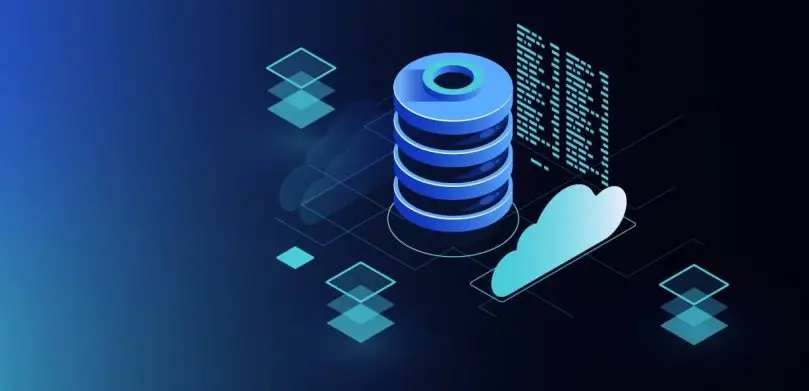Enterprises face an unprecedented volume of data, coupled with increasing cyber threats and compliance requirements. Amidst this complexity, ensuring the protection and recoverability of endpoints—such as laptops, desktops, and mobile devices—has become a fundamental aspect of an organization’s IT strategy. Enterprise endpoint backup solutions play a pivotal role in safeguarding data, maintaining operational continuity, and mitigating the risks associated with data loss. This article delves into the essential aspects of enterprise endpoint backup solutions, their benefits, and best practices for implementation.
Understanding Enterprise Endpoint Backup Solutions
Enterprise endpoint backup solutions are designed to protect data stored on individual endpoints within an organization. These endpoints include laptops, desktops, mobile devices, and other endpoints that employees use to access and interact with corporate data. Unlike traditional backup solutions that may focus primarily on servers and data centers, endpoint backup solutions target the protection of data on these user devices, which are often the first line of interaction with organizational information.
Endpoint backup solutions typically involve a combination of software and cloud-based services that continuously or periodically back up data from user devices to a central repository. This ensures that in the event of data loss—due to hardware failure, accidental deletion, ransomware attacks, or other issues—the data can be recovered quickly and efficiently.
The Benefits of Enterprise Endpoint Backup Solutions
- Data Protection and Recovery
One of the most significant benefits of endpoint backup solutions is the ability to protect data from loss and facilitate rapid recovery. Endpoints are susceptible to a variety of threats, including malware, hardware failures, and user errors. Regular backups ensure that copies of critical data are available and can be restored in case of any data loss incident. This minimizes downtime and helps organizations maintain business continuity.
- Enhanced Security Against Cyber Threats
Cybersecurity threats, such as ransomware and phishing attacks, pose a growing risk to endpoint data. Endpoint backup solutions can mitigate these risks by providing a secure backup environment. Modern backup solutions often include advanced encryption and secure storage options to protect backup data from unauthorized access. In the event of a ransomware attack, for example, organizations can restore clean, unencrypted versions of their data from backups, reducing the impact of the attack.
- Compliance and Legal Requirements
Many industries are subject to strict regulatory and compliance requirements concerning data protection and retention. Enterprise endpoint backup solutions help organizations meet these obligations by ensuring that data is backed up and retained according to legal and regulatory standards. For instance, regulations such as GDPR, HIPAA, and SOX mandate specific data protection and retention practices, and having a robust backup solution in place helps organizations demonstrate compliance and avoid potential penalties.
- Reduced Risk of Data Loss
Data loss can occur due to various reasons, including accidental deletion, hardware malfunctions, or natural disasters. Endpoint backup solutions provide a safety net by creating redundant copies of data, thereby reducing the risk of permanent data loss. In cases where data recovery is needed, having multiple backup versions ensures that the most recent and relevant data can be restored, minimizing the impact on business operations.
- Streamlined Data Management
Managing data across numerous endpoints can be challenging, especially in large organizations with distributed workforces. Enterprise endpoint backup solutions simplify data management by providing centralized control over backup processes. IT administrators can configure, monitor, and manage backup tasks from a single console, streamlining operations and ensuring that all endpoints are adequately protected.
Best Practices for Implementing Endpoint Backup Solutions
- Choose a Comprehensive Backup Solution
Selecting the right endpoint backup solution is crucial for effective data protection. Look for solutions that offer comprehensive coverage, including support for various operating systems, applications, and file types. The solution should also provide features such as incremental backups, versioning, and automated scheduling to ensure that backups are performed regularly and efficiently.
- Implement Strong Security Measures
Security is a top priority for endpoint backup solutions. Ensure that the solution employs robust encryption methods both during transmission and while data is at rest. Additionally, choose a solution that offers secure access controls and authentication mechanisms to prevent unauthorized access to backup data.
- Regularly Test Backup and Recovery Processes
Regular testing of backup and recovery processes is essential to ensure that data can be restored effectively when needed. Periodically perform test restores to verify the integrity and completeness of backup data. This practice helps identify potential issues and ensures that backup processes are functioning as expected.
- Adopt a Multi-Tier Backup Strategy
A multi-tier backup strategy involves combining different backup methods to enhance data protection. For example, use a combination of local backups (stored on-site) and cloud-based backups (stored off-site). This approach provides redundancy and ensures that data can be recovered even if one backup method fails.
- Educate and Train End Users
End users play a critical role in data protection. Providing training and education on best practices for data management and security helps reduce the risk of accidental data loss. Users should be aware of how to properly save and back up their data and recognize potential threats such as phishing scams.
- Monitor and Update Backup Policies
Backup policies and procedures should be regularly reviewed and updated to adapt to changing business needs and technological advancements. Monitor backup performance, review backup logs, and adjust policies as necessary to ensure that the backup solution remains effective and aligned with organizational goals.
Conclusion
Enterprise endpoint backup solutions are an essential component of a comprehensive data protection strategy. They offer significant benefits, including data protection and recovery, enhanced security, compliance with regulatory requirements, and streamlined data management. By implementing best practices in cybersecurity solutions and choosing a robust backup solution, organizations can safeguard their endpoint data, mitigate risks, and ensure operational continuity. In an era where data is a critical asset, investing in reliable endpoint backup solutions is crucial for maintaining business resilience and securing valuable information.


 Using SQL for Bayesian Inference: Building Probabilistic Models with Data
Using SQL for Bayesian Inference: Building Probabilistic Models with Data  Why do people love the surprises in online slot games?
Why do people love the surprises in online slot games?  Can shockwave for ED help men with high cholesterol?
Can shockwave for ED help men with high cholesterol?  Feeding Sheep Through the Seasons: Changing diets for summer and winter
Feeding Sheep Through the Seasons: Changing diets for summer and winter  Role of CBD Vape Pens in Natural Pain Relief?
Role of CBD Vape Pens in Natural Pain Relief?  Simple Steps to Prevent Burnout Before It Takes a Toll
Simple Steps to Prevent Burnout Before It Takes a Toll  Why Low-Acid Organic Coffee is the Perfect Choice for Sensitive Stomachs?
Why Low-Acid Organic Coffee is the Perfect Choice for Sensitive Stomachs?  Which Ayurvedic Medicine is the Best Tablet for Piles?
Which Ayurvedic Medicine is the Best Tablet for Piles?  Discover the Latest Hits on Zee5: Must-Watch Movies and Series
Discover the Latest Hits on Zee5: Must-Watch Movies and Series 